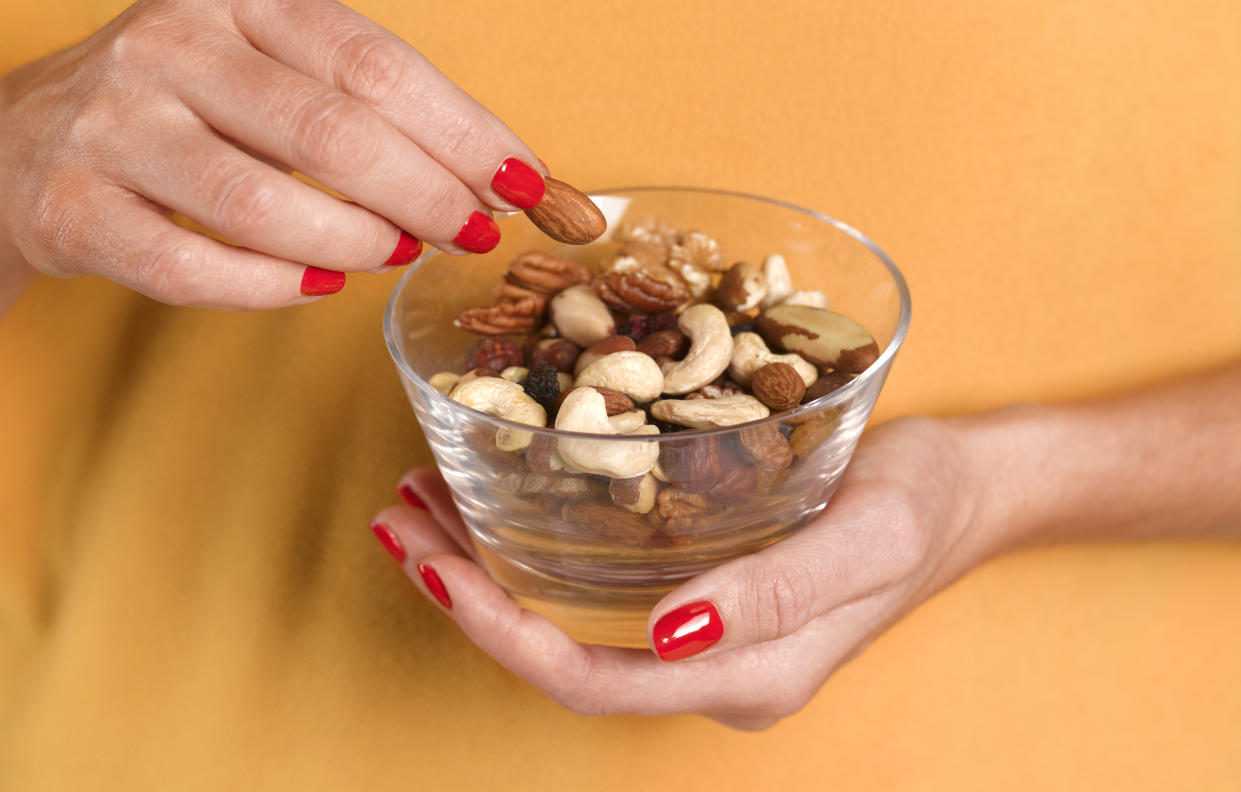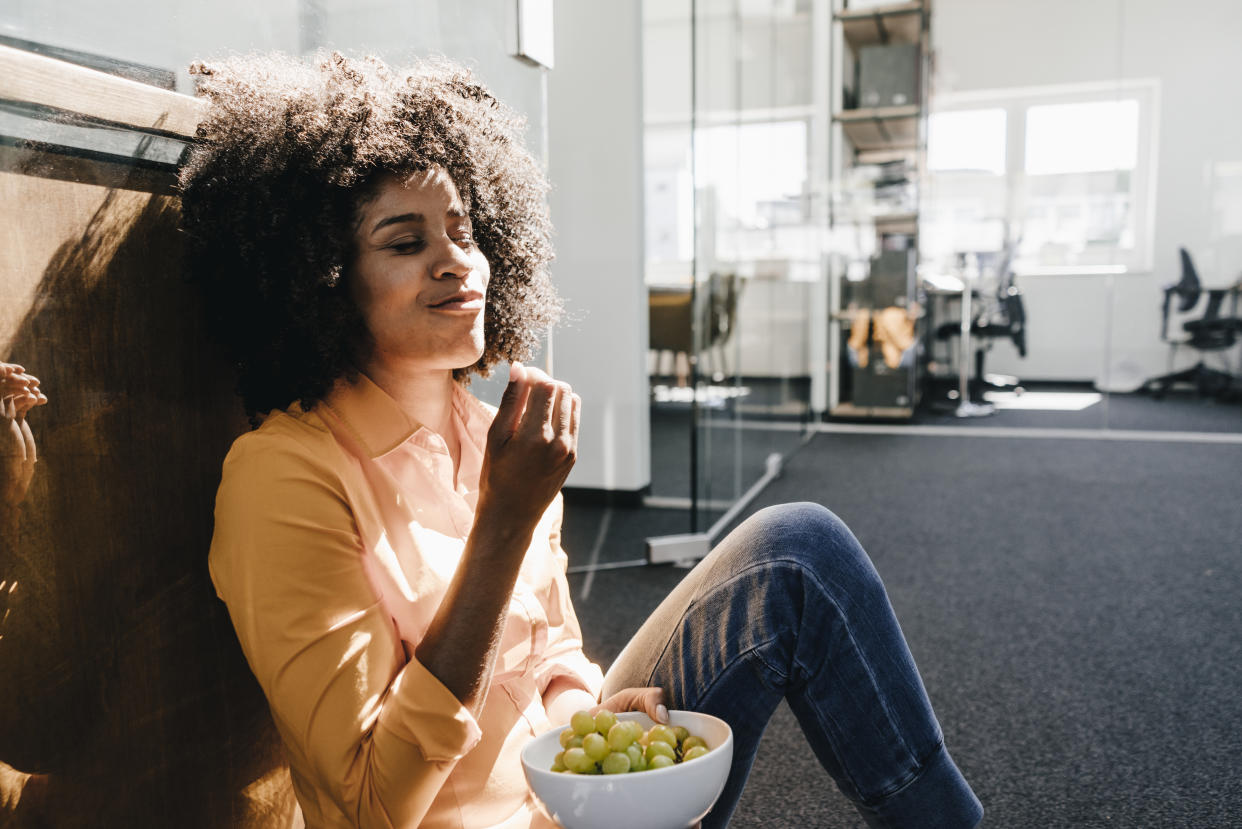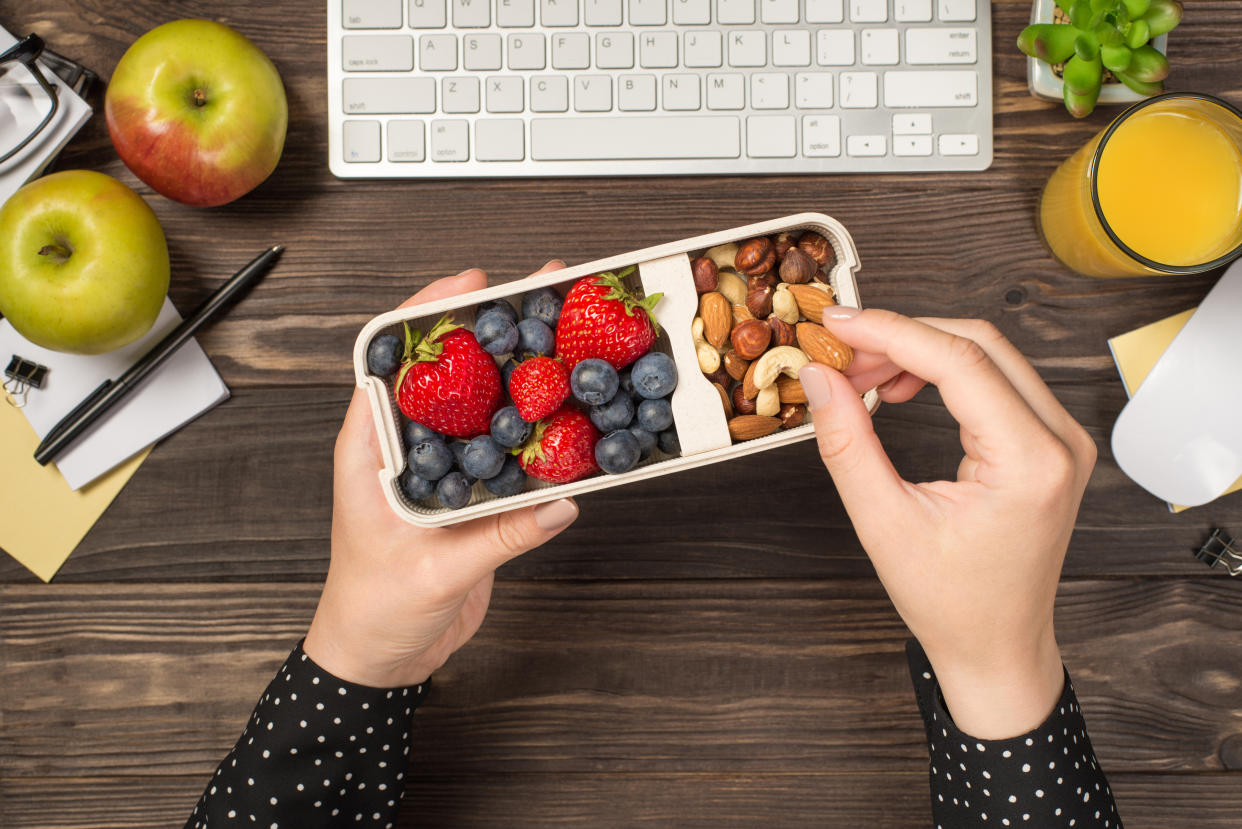How to snack healthier and still satisfy your cravings

Britons love a little snack, with chocolate biscuits and crisps reigning supreme in our pantries. However, as more people become increasingly interested in looking after their health, we may have to make a change to our snacking habits.
According to a YouGov survey, the nation’s favourite snacks include KitKat, Galaxy and Twix chocolate bars, Pringles and Walkers crisps, and McVitie’s Digestives and Milk Chocolate Digestives.
But as more research into the impact of ultra-processed and junk foods emerges, many people are rethinking their diets and are keen on picking up healthier habits. At the same time, there is an increased awareness about the importance of making changes that will last, instead of turning to quick fixes when it comes to their health.
A growing number of people are prioritising sustainable, feel-good approaches to health, according to an Annual Health Survey by snack brand graze.
When it comes to snacking, cravings often drive us towards snacks that we know and love, like chocolate and crisps. However, identifying why you are craving a particular snack and understanding what you can reach for instead can help you become a healthier snacker.

Eleanor McClelland, head of food at graze, shares her insight and advice on what cravings mean and how to navigate them so you can improve your snacking habits.
What do different types of cravings mean?
If you’ve ever been hit with a craving for a little something sweet or salty, you’re far from alone. Everyone experiences cravings, but McClelland explains that they could have deeper meanings.
"When we crave certain food, we can often mistake this as our body telling us we need this specific item. However, it could be our body’s way of saying that we’re deficient in certain nutrients," she says.
"If it’s sugary snacks you crave such as chocolate or biscuits, you could have an imbalance in your blood glucose levels or a deficiency of fat or protein in your diet.
"Craving savoury foods can also indicate a lack of protein. It can often lead to reaching for high-calorie, high-in-sodium foods and snacks that won’t satisfy the craving.
"Try foods that are packed with protein and high in fibre such as nuts or roasted pulses or beans. If it’s salted covered peanuts that you’re reaching for, you may be low on iron, magnesium, or zinc. As they are often high in sodium, this can lead to health challenges such as high blood pressure and heart disease."
How do you choose a healthier snack?
Instead of going for your usual snacks, McClelland advises: "When craving something sweet instead of reaching for a chocolate bar, which is high in sugar and saturated fat, choose snacks with a balance of natural sugars, protein and fat like apple slices dipped in nut butter.
"Try replacing high in salt nuts or crisps with roasted, unsalted nuts or experiment by adding your own seasonings like smoked paprika, cinnamon or rosemary which would pack a great flavour punch. Being prepared and making small positive changes can help to avoid sudden cravings for processed, unhealthy foods."
How do you satisfy cravings in a healthy way?
Understanding what is driving your cravings is important, so it can be useful to take note if you are craving a snack at a particular time of day or for a specific type of food.
Then, try to determine whether you are hankering for a snack because you’re genuinely hungry, or because you’re simply bored.

"The best tip is to listen to your body and respond to its hunger cues. If you know you always get peckish mid-morning and mid-afternoon, have healthy snacks ready for those times to see you through," McClelland says.
In order to develop sustainable healthy habits that are both enjoyable and will promote wellbeing in the long term, McClelland recommends doing plenty of preparation and to educate yourself.
"Plan ahead and learn about foods that support a healthy lifestyle to make the best choices. As a rule of thumb, incorporate a variety of plant-based foods—such as fruits, nuts, whole grains, beans, pulses, seeds, herbs, and spices—into your diet as a foundation.
"Also make sure to have a little browse of the food labels, especially the front-of-pack traffic light labels, to easily compare foods. There are a lot of resources for you to look at such as the guidelines from the NHS that offer more helpful tips on choosing the right food for you."
Read more about gut health:
What your breath says about your gut health (Yahoo Life UK, 5-min read)
How to choose the right yoghurt to support gut health (Yahoo Life UK, 4-min read)
Could this common food preservative impact your gut health? (Yahoo Life UK, 6-min read)


